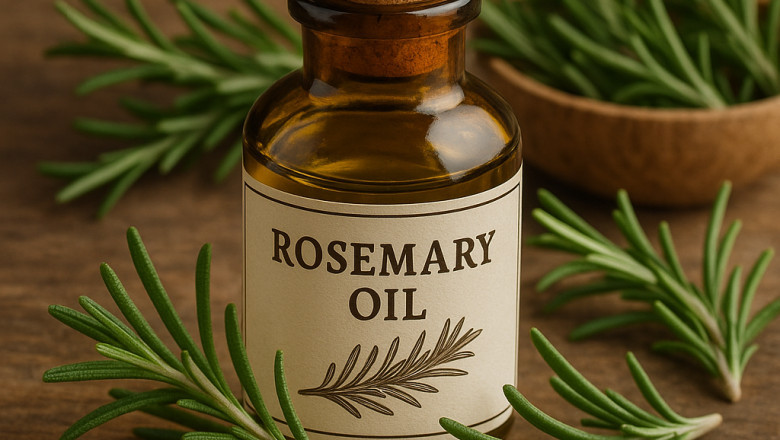17
views
views
In the world of natural wellness, Rosemary oil is quickly gaining attention as a go-to solution for everything from hair loss to mental fatigue. With centuries of traditional use and growing scientific interest, it's easy to see why this essential oil has become a staple in many households. But amidst all the buzz, one question remains: Does rosemary oil really work?
Let’s dive into the evidence, explore the real benefits, and separate the hype from the facts.
Let’s dive into the evidence, explore the real benefits, and separate the hype from the facts.
What is Rosemary Oil?
Rosemary Oil is an essential oil derived from the leaves of the Rosmarinus officinalis plant, a woody, aromatic herb native to the Mediterranean. Known for its distinctive scent and therapeutic properties, rosemary oil has been used for centuries in traditional medicine to treat a variety of ailments. Today, it's widely recognized for its antioxidant, anti-inflammatory, and antimicrobial effects, making it a popular choice in natural health and beauty routines.
The Science Behind Rosemary Oil: Does It Actually Work?
1. Hair Growth and Scalp Health
Among its many claims, rosemary oil is most famously associated with promoting hair growth. But is there science to support it?
- A 2015 clinical study found rosemary oil to be as effective as minoxidil (a popular hair regrowth treatment) in treating androgenetic alopecia (male/female pattern baldness), without the side effects such as scalp irritation.
- Its ability to stimulate blood circulation in the scalp helps strengthen hair follicles and promote healthier growth.
2. Improved Cognitive Function
Studies suggest that inhaling rosemary oil can enhance mental clarity and memory retention. Research from Northumbria University showed improved cognitive performance in individuals exposed to rosemary aroma, thanks to compounds that interact with the brain’s neurotransmitters.
3. Natural Pain Relief
Rosemary oil contains anti-inflammatory compounds like carnosol and rosmarinic acid, which may help alleviate:
- Muscle pain
- Joint inflammation
- Headaches and migraines
When diluted and applied topically, it acts as a mild analgesic that soothes sore areas.
4. Antimicrobial Protection
Rosemary oil has shown effectiveness against certain bacteria and fungi. It’s often used to:
- Combat acne and skin infections
- Cleanse minor wounds
- Treat dandruff and itchy scalp conditions
How to Use Rosemary Oil Effectively
You can integrate Rosemary oil into your self-care routine in several easy ways:
- Hair Care: Mix a few drops with a carrier oil and massage into your scalp before washing.
- Aromatherapy: Diffuse or inhale directly to boost focus and reduce stress.
- Topical Application: Dilute with a carrier oil and apply to sore muscles or inflamed skin.
⚠️ Note: Always perform a patch test before using any essential oil on your skin to avoid allergic reactions.Final Thoughts: Is It Worth Using Rosemary Oil?
The short answer is yes—as long as you use it correctly and consistently. Backed by both research and anecdotal evidence, rosemary oil shows genuine potential for hair care, mental clarity, pain relief, and more.If you're ready to explore its benefits for yourself, we recommend trying a high-quality, ethically sourced product like Rosemary oil to experience its natural wellness properties firsthand.FAQs
Q: How often should I use rosemary oil for hair growth?A: 2–3 times per week is typically recommended for best results.Q: Can I apply rosemary oil directly to my scalp?A: Always dilute with a carrier oil to avoid irritation.Q: How long does it take to see results?A: Most users notice improvements after 3–6 months of consistent use.













![Gyms, Health and Fitness Market [2025-2033] is Growing Rapidly at Upcoming](https://timessquarereporter.com/public/upload/media/posts/2025-04/17/gyms-health-and-fitness-market-2025-2033-is-growing-rapidly-at-upcoming_1744883568-s.jpg)








Comments
0 comment